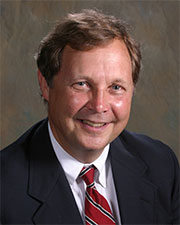|
Emergency Department Opioid Overdose Discharge: A Rx or a 'System' of Care (OPIOID)
Friday, April 19, 2024; 1 - 2 p.m.
Arlo Weltge, MD, MPH, FACEP
The CDC has recognized three waves of opioid overdose deaths (OOD). The first wave includes mortality related to the pharmaceutical industry pressure to prescribe opioids (1990s). The second wave includes mortality related to the small percentage of patients who received an opioid prescription who became dependent on opioids and turned to illicit medication sources (2010ff). The third and most dramatic wave of deaths is related to high potency illicit synthetic opioids (e.g., fentanyl) contaminating a wide range of illicit substances (2013ff).
These three waves of overdose deaths have had a major impact on prehospital care and the rise of substance abuse disorders (SUD) being seen in the ED. The Emergency Physician, whether writing a prescription for an opioid, seeing a patient who has unintentionally overdosed on an opioid (received Narcan prehospital), or has an opioid use disorder , is an important subset of ED patients. Opioids have both a specific antidote, with Good Samaritan protections in Texas for their use, and specific medications, such as suboxone, to support recovery. However, the ED discharge process can be an important part of the standard of care of patients, and can be managed through a system of care, minimizing ED physician time for discharge.
Objectives:
- Identify key discharge components for patients experiencing opioid overdose including those at risk of synthetic opioid (e.g., fentanyl) overdose that warrant access to Narcan (antidote).
- Describe barriers to recovery for Opioid Use Disorder (OUD), including stigma, and components of an effective recovery support system, such as the UT Health Houston - Heroes (Houston ER Opioid Engagement Systems).
- State components of a reasonable plan to initiate and monitor medications of OUD (MOUD), such as suboxone, for a patient with OUD seeking recovery support.
- Coordinate and delegate effective and appropriate discharge of a person with OUD to a system of care.
- Other components: State available resources, confidentiality, and protections for first responders (fire, police, EMS) and health care workers (physicians and nurses) access for burnout, suicidal ideation, substance abuse, and MOUD related issues.
|
|

|
Arlo Weltge, MD, MPH, FACEP
Dr. Arlo Weltge is a clinical professor of Emergency Medicine at UTHealth. He founded and directed Southeast Texas Emergency Physicians, a Houston-based multihospital democratic Emergency physician group. As the first board-certified emergency physician at UT Houston, he played a pivotal role in establishing the emergency medicine residency program. Dr. Weltge served as medical director at Memorial Hermann Hospital ED and was actively involved in committees for UT Medical School, Memorial Hermann Hospital, and the Harris County Hospital District.
His contributions extend to education, having founded and directed the Technical Skills Program at UT Houston Medical School. He co-directs the 'Business of Medicine' course for UT and Baylor medical students and is a longtime member of the Committee for the Protection of Human Subjects. Dr. Weltge's interests include Occupational and Environmental Medicine, and he's been involved in Emergency Medical Services, serving as medical director for various organizations.
In the realm of professional associations, he held leadership roles, including president of the Texas College of Emergency Physicians. He contributed to the American Heart Association and CDC, and presently holds an officer position in the Harris County Medical Society. Outside medicine, Dr. Weltge is deeply engaged in the community, serving on boards like the Star of Hope Mission and the Houston Recovery Center, reflecting his commitment to humanitarian causes.
|
|